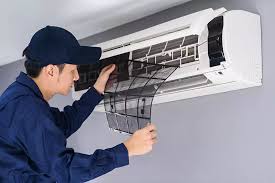HVAC (Heating, Ventilation, and Air Conditioning) systems play a crucial role in maintaining indoor air quality and comfort in residential, commercial, and industrial settings. Central to their efficient operation are HVAC air filters, which trap airborne particles such as dust, pollen, pet dander, and other contaminants. These filters require regular maintenance and timely replacement to ensure optimal performance and to safeguard both the HVAC system and indoor air quality.

Importance of Maintenance
Proper maintenance of HVAC air filters is essential for several reasons. Firstly, clean filters allow for efficient airflow, which directly impacts the system's energy efficiency. Clogged filters force HVAC systems to work harder, consuming more energy and potentially leading to higher utility bills. Moreover, restricted airflow due to dirty filters can cause overheating and mechanical strain on system components, potentially shortening their lifespan and increasing maintenance costs.
Secondly, maintaining clean filters contributes significantly to indoor air quality (IAQ). According to the Environmental Protection Agency (EPA), indoor air can be two to five times more polluted than outdoor air, primarily due to airborne pollutants trapped indoors. HVAC filters act as the first line of defense against these pollutants, improving IAQ and promoting a healthier indoor environment, especially for occupants sensitive to allergens or respiratory issues.
Frequency of Filter Replacement
The frequency of HVAC filter replacement depends on several factors, including:
Type of Filter: Filters vary in material and efficiency ratings (MERV ratings). Standard fiberglass filters typically need replacement every 1 to 3 months, while higher-efficiency filters (such as HEPA Filters) may last 6 to 12 months or longer.
Indoor Air Quality: High-traffic areas or environments with pets may require more frequent filter changes due to increased airborne particles.
System Usage: Systems running continuously or in extreme weather conditions may require more frequent filter changes to maintain airflow and efficiency.
Manufacturer Recommendations: Following manufacturer guidelines for filter maintenance and replacement ensures optimal system performance and warranty compliance.
Steps for Maintenance
Regular maintenance of HVAC filters involves the following steps:
Inspection: Regularly inspect filters for accumulation of dust and debris. Visual inspection can often indicate whether a filter needs cleaning or replacement.
Cleaning (if applicable): Some filters are washable and reusable. Follow manufacturer instructions for cleaning procedures, ensuring filters are completely dry before reinstallation.
Replacement: When filters appear visibly dirty or after the recommended replacement period, replace them promptly. Ensure replacement filters match the system specifications and MERV rating recommendations.
Seal and Secure: Properly seal filters within their housing to prevent air bypass, ensuring all air passes through the filter media.
Documentation: Keep records of filter replacements and maintenance schedules. This helps track filter lifespan and ensures timely replacements.
Benefits of Timely Replacement
Timely replacement of HVAC filters offers numerous benefits:
Improved Energy Efficiency: Clean filters reduce airflow resistance, allowing the HVAC system to operate more efficiently and consume less energy.
Extended System Lifespan: Reduced strain on HVAC components prolongs their lifespan, minimizing repair and replacement costs.
Enhanced Indoor Air Quality: Regular filter changes remove airborne pollutants, allergens, and contaminants, improving IAQ and supporting occupant health.
Maintained Warranty Compliance: Following manufacturer recommendations for filter maintenance and replacement helps maintain warranty coverage on HVAC equipment.
Conclusion
HVAC air filter maintenance and timely replacement are critical for optimizing system performance, enhancing indoor air quality, and reducing energy consumption. By adhering to recommended maintenance schedules and procedures, building occupants can enjoy improved comfort, health, and cost savings while ensuring the longevity of their HVAC systems. Regular inspections, proper cleaning or replacement, and adherence to manufacturer guidelines are key practices in achieving these benefits and maintaining a healthy indoor environment.





